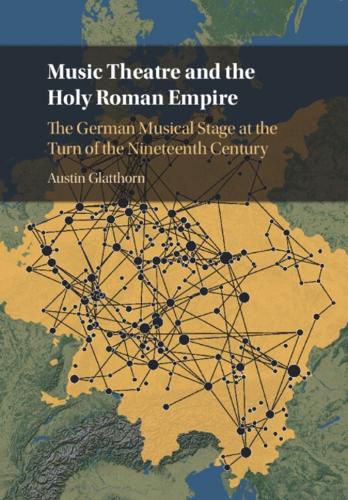Readings Newsletter
Become a Readings Member to make your shopping experience even easier.
Sign in or sign up for free!
You’re not far away from qualifying for FREE standard shipping within Australia
You’ve qualified for FREE standard shipping within Australia
The cart is loading…






Packed full of new archival evidence that reveals the interconnected world of music theatre during the 'Classical era', this interdisciplinary study investigates key locations, genres, music, and musicians. Austin Glatthorn explores the extent to which the Holy Roman Empire delineated and networked a cultural entity that found expression through music for the German stage. He maps an extensive network of Central European theatres; reconstructs the repertoire they shared; and explores how print media, personal correspondence, and their dissemination shaped and regulated this music. He then investigates the development of German melodrama and examines how articulations of the Holy Roman Empire on the musical stage expressed imperial belonging. Glatthorn engages with the most recent historical interpretations of the Holy Roman Empire and offers quantitative, empirical analysis of repertoire supported by conventional close readings to illustrate a shared culture of music theatre that transcended traditional boundaries in music scholarship.
$9.00 standard shipping within Australia
FREE standard shipping within Australia for orders over $100.00
Express & International shipping calculated at checkout
Packed full of new archival evidence that reveals the interconnected world of music theatre during the 'Classical era', this interdisciplinary study investigates key locations, genres, music, and musicians. Austin Glatthorn explores the extent to which the Holy Roman Empire delineated and networked a cultural entity that found expression through music for the German stage. He maps an extensive network of Central European theatres; reconstructs the repertoire they shared; and explores how print media, personal correspondence, and their dissemination shaped and regulated this music. He then investigates the development of German melodrama and examines how articulations of the Holy Roman Empire on the musical stage expressed imperial belonging. Glatthorn engages with the most recent historical interpretations of the Holy Roman Empire and offers quantitative, empirical analysis of repertoire supported by conventional close readings to illustrate a shared culture of music theatre that transcended traditional boundaries in music scholarship.